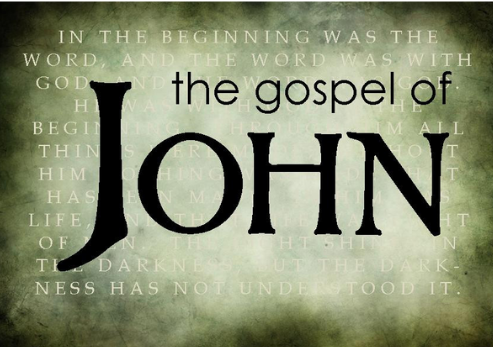| 31 Now is the judgment of this world; now the ruler of this world will be cast out. 32 And I, if I am lifted up from the earth, will draw all peoples to Myself." 33 This He said, signifying by what death He would die. 34 The people answered Him, "We have heard from the law that the Christ remains forever; and how can You say, 'The Son of Man must be lifted up'? Who is this Son of Man?" 35 Then Jesus said to them, "A little while longer the light is with you. Walk while you have the light, lest darkness overtake you; he who walks in darkness does not know where he is going. 36 While you have the light, believe in the light, that you may become sons of light." These things Jesus spoke, and departed, and was hidden from them. 37 But although He had done so many signs before them, they did not believe in Him, 38 that the word of Isaiah the prophet might be fulfilled, which he spoke: "Lord, who has believed our report? And to whom has the arm of the LORD been revealed?" 39 Therefore they could not believe, because Isaiah said again: 40 "He has blinded their eyes and hardened their hearts, Lest they should see with their eyes, Lest they should understand with their hearts and turn, So that I should heal them." 41 These things Isaiah said when he saw His glory and spoke of Him. 42 Nevertheless even among the rulers many believed in Him, but because of the Pharisees they did not confess Him, lest they should be put out of the synagogue; 43 for they loved the praise of men more than the praise of God. 44 Then Jesus cried out and said, "He who believes in Me, believes not in Me but in Him who sent Me. 45 And he who sees Me sees Him who sent Me. 46 I have come as a light into the world, that whoever believes in Me should not abide in darkness. 47 And if anyone hears My words and does not believe, I do not judge him; for I did not come to judge the world but to save the world. 48 He who rejects Me, and does not receive My words, has that which judges him--the word that I have spoken will judge him in the last day. 49 For I have not spoken on My own authority; but the Father who sent Me gave Me a command, what I should say and what I should speak. 50 And I know that His command is everlasting life. Therefore, whatever I speak, just as the Father has told Me, so I speak." Questions to Consider:
| Jesus refers to Himself a the light of the world. v.35,36,46. Before Jesus arrived the world was shrouded in darkness, and although God had a plan, the Savior had not yet come into the world. Jesus was sent on a specific mission by God. He was light; He was the Christ; He was the Savior; He was the Atonement for sins of mankind. v.32 Once again Jesus refers to being "lifted up." This is an obvious prophetic word that is referring to the cross. There are times, as you read about Jesus' interactions with the Pharisees and even with His disciples, where His answers seem somewhat obtuse. The question must be answered: "Why were Jesus' answers to questions so veiled and difficult to understand? Jesus gives us the answer in v.49. "For I have not spoken on My own authority; but the Father who sent Me gave Me a command, what I should say and what I should speak." What this means is the Jesus was somewhat obtuse by design. Even among the rulers of the Jews v.42, there were those who believed in Him. Had Jesus been more open about who He was, done miracles on demand, and played to the crowds, there is a very real chance that the people would have fully embraced Jesus as the Messiah and made Him the King of Israel. If Jesus had desired power and position, even the Roman Legions would have fallen before Him. This was not the Father's plan for Jesus. God's plan for Jesus did not settle for being the King of a small oppressed country; rather it was the grandest of plans to bring salvation to the world. v.31 "The ruler of this world will be cast out." The atoning work of Christ was the beginning of the end for Satan (the ruler of this world). Was Satan aware that the death and resurrection of Jesus would ultimately result in his defeat? That is a good theological question. It seems to me that Satan was always trying to prevent the atoning work from taking place. Through Herod, Satan tried to kill Jesus while He was yet a young child. During the temptation of Christ in the wilderness, Satan offered Jesus the kingdoms of earth. Satan spoke through Peter and told Jesus that He did not have to go the death and pain of the Father's plan. Even on the cross satanic voices said that they would worship Jesus as the Messiah if He would come down off the cross. Jesus was resolute in following the Father's plan, it showed in His actions and in His words. This was Jesus' last public interaction with people other than His disciples before His arrest. He pleads with His audience one last time. v.36 "Believe in the light that you might become sons of light." v.46 "I have come as a light into the world, that whoever believes in Me should not abide in darkness." Those words are as relevant today as when Jesus spoke them 2,000 years ago. |
|
0 Comments
|
RJ DugoneLead Teaching Elder: Archives
July 2020
Categories
All
|


 RSS Feed
RSS Feed
